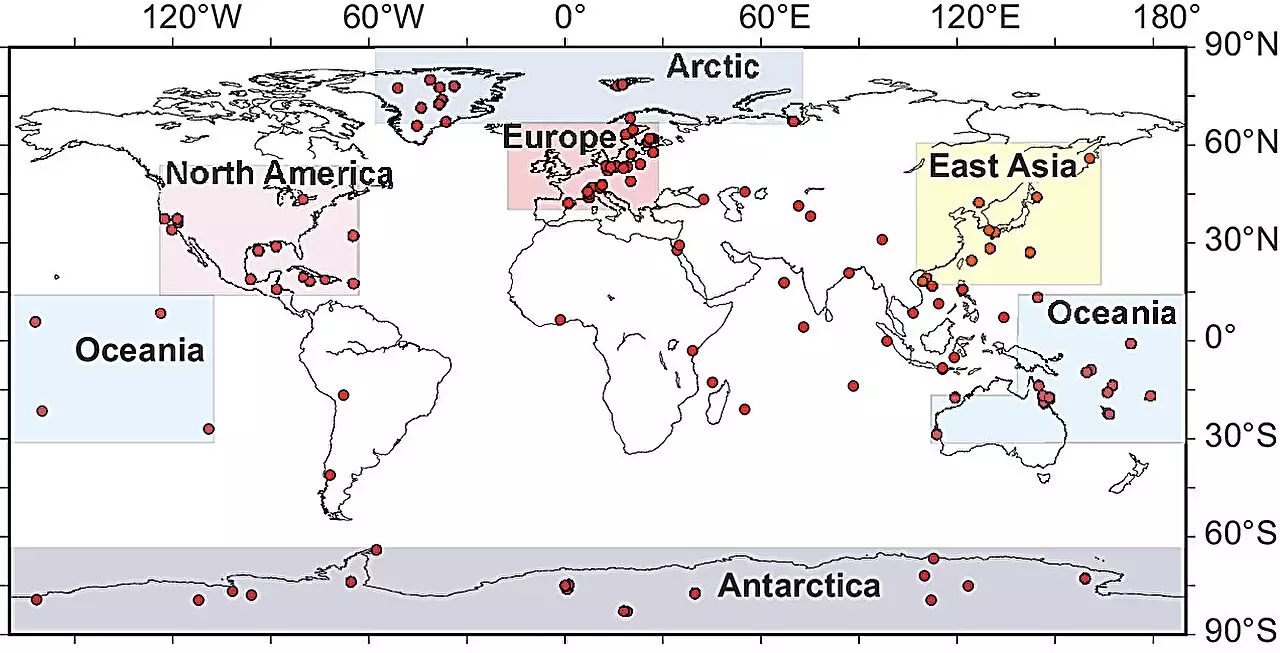In recent years, the concept of the Anthropocene—a term introduced to signify a new geological epoch characterized by significant human impact on the Earth—has sparked extensive scientific discussions. A collaborative research effort conducted by Earth scientists from various prestigious institutions, including the University of Tokyo, The Australian National University, and others, has made strides in determining an appropriate starting point for this epoch. Their findings propose the 1950s as the most compelling candidate, a conclusion that encompasses not merely historical significance but a profound understanding of humanity’s environmental legacy.
A Brief Background on the Anthropocene Concept
The notion of the Anthropocene gained traction in 2002, when Nobel laureate Paul Crutzen posited that the Holocene epoch, marked by stable climatic conditions, had entered a transformative phase driven by human activities. The debate surrounding this proposed era began in earnest, with scientists divided over the timing and defining characteristics that warrant such a classification. While some assert that the evidence accumulated thus far is sufficient to mark this shift, others remain skeptical, citing insufficient indicators to definitively declare a new epoch.
The recent research investigated three primary candidates that could potentially delineate the beginning of the Anthropocene. The first nominee is the late 1800s, a period synonymous with the onset of the Industrial Revolution. During this time, the Earth’s landscape experienced dramatic alterations, including widespread dissemination of lead into the environment and the marked impact of new manufacturing processes.
Next, the early 1900s are considered due to observable global phenomena such as changes in pollen distributions, an explosion of black carbon emissions, and substantial adjustments in stable isotope ratios linked to agricultural advancements and urbanization. Both periods underscore humanity’s burgeoning influence on natural processes, but the researchers argue that these eras did not yield the magnitude of transformation seen in mid-20th century.
The standout decade, according to the recent paper published in the *Proceedings of the National Academy of Sciences*, is the 1950s. This decade marked a seismic shift in human impact, encapsulating a variety of unprecedented changes that could have long-lasting repercussions for the planet. The proliferation of organic pollutants, alongside the staggering introduction of plastic materials and microplastics into ecosystems, signifies not just an unprecedented level of pollution, but a fundamental change in how these materials interact with the environment.
Furthermore, the initiation of the nuclear age during the 1950s introduced a new trajectory for human influence, with nuclear test fallout demonstrating a clear and measurable mark on geological records. The widespread geological evidence of these tests, coupled with emergent global warming patterns, creates a compelling case for ascribing the Anthropocene’s start to this timeframe. The researchers assert that the transformations observed in the 1950s are not just ephemeral impacts, but rather permanent alterations that would require eons to revert to pre-Anthropocene conditions.
The implications of recognizing the 1950s as the start of the Anthropocene resonate far beyond the geological community; they serve as a stark reminder of the profound impact humans have had on the planet. This acknowledgment compels a reevaluation of our environmental responsibilities and urges a reconsideration of our relationship with the Earth. As global warming accelerates and ecological integrity deteriorates, understanding the Anthropocene’s origins will be crucial for informing future policies and conservation efforts.
By examining this critical period in human history, we are not only charting the course of our planet’s geological narrative but also shaping the roadmap for sustainable practices and a hopeful future. The 1950s, therefore, should not merely be seen as a scientific milestone, but as a call to action to remedy the consequences of our past and to forge a path toward a more harmonious existence with our planet.

